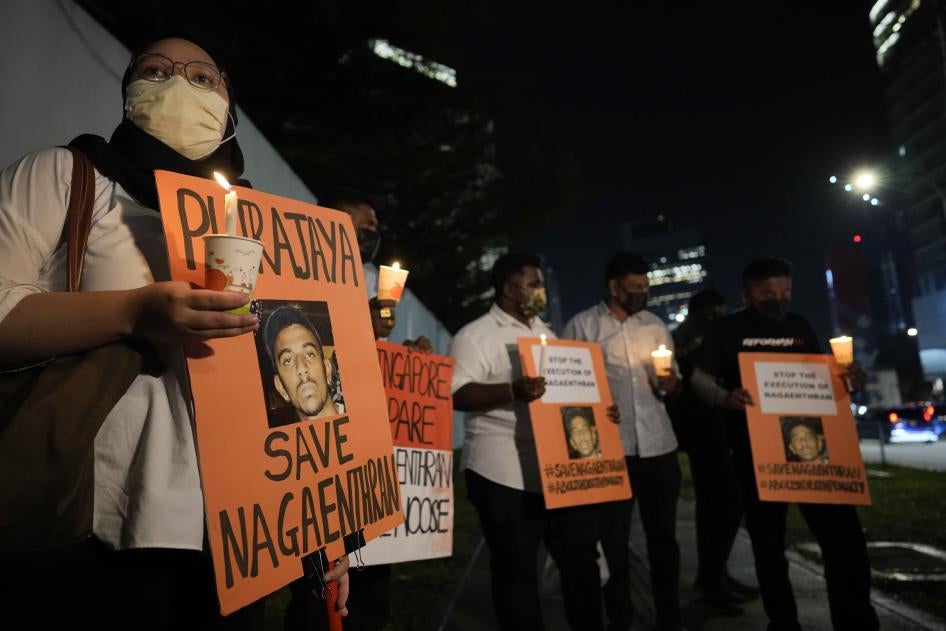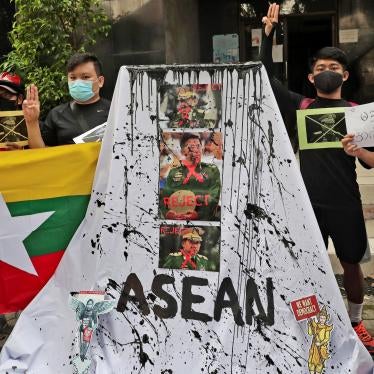When Nagaenthran Dharmalingam, a Malaysian national, was facing the death penalty in Singapore on drug charges, Malaysia’s prime minister and foreign minister twice wrote to the Singapore government asking for clemency. According to a statement from the Foreign Ministry, they even offered to discuss transferring Nagaenthran to Malaysia.
On April 27, Singapore hanged Nagaenthran in the face of massive international calls for clemency. After the execution, Malaysia’s Foreign Ministry put out a statement thanking all of those who had campaigned on his behalf.
While the Malaysian government’s activism on behalf of its citizen is laudable, it is also hypocritical. Nagaenthran was sentenced to death in 2010 for bringing 42.72 grams (approximately three tablespoons) of diamorphine – a drug made from morphine – into Singapore. He likely would have faced the same death sentence had he been arrested in Malaysia.
Judges in Malaysia are currently required to impose the death penalty on almost anyone convicted of “trafficking” in drugs – presumed for anyone possessing more than minimal amounts. Since the presumption applies to those carrying 15 grams of morphine or diamorphine, Nagaenthran also would have been presumed to be “trafficking” in drugs under Malaysian law.
Amendments passed in 2017 provide Malaysian judges limited discretion to impose a life sentence plus whipping instead of the death penalty. However, according to research by Australia’s Monash University, judges exercised their discretion to impose a life sentence in only four of the 38 cases in which a defendant was convicted of drug trafficking between March 2018, when the amendments went into effect, and October 2020. The other 34 defendants were sentenced to death.
While Malaysia declared a moratorium on executions in July 2018, the laws imposing the death penalty remain on the books and courts continue to sentence defendants to death. On the same day that the Foreign Ministry issued its statement on Nagaenthran, a court in the city of Kuching sentenced a man to death for trafficking methamphetamine.
The Malaysian government should stop playing games with people’s lives and commit to enacting legislation to eliminate the death penalty for all – not just some – drug offenses in the next sitting of Parliament. And if it wants its international calls for clemency to be taken seriously, the government should move swiftly to full abolition of the death penalty, an inherently cruel punishment wherever it is carried out.









